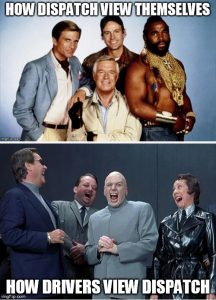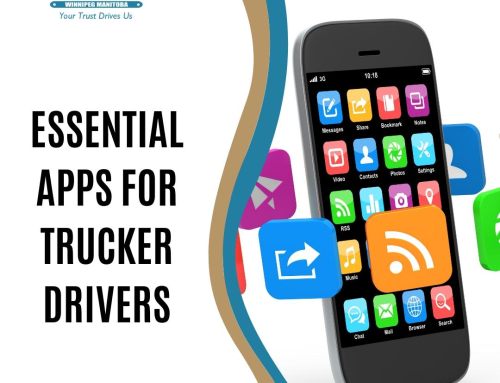
Working in a Dispatch Office is not an Easy Job
Being a dispatcher is a high pressured and very demanding job. Life for everyone would be simple if there were 10 loads to move and 10 trucks to take them, but life in the dispatch office isn’t that simple.
In broad terms, there is a constant balancing act of sourcing and securing loads from hundreds of locations across Canada and the U.S.; ensuring that the expectations of the driving fleet and the company clients are being met; and preserving the company’s bottom line. There are a lot of moving parts in the logistics chain and dispatch is responsible for making sure that everything runs smoothly.
Dispatchers in the Trucking Industry take a lot of Flak
You know that old saying “Sh** rolls down hill”, well in the trucking industry it tends to run down hill, up hill and even sideways sometimes catching dispatchers in the middle. When a load is late, dispatch has to deal with the client. When a load doesn’t make money, dispatch has to deal with upper management. When a load doesn’t go according to plan, dispatch has to deal with the driver. Again, it wouldn’t be so bad if this just happened every once in awhile, but when you’re managing a fleet of trucks, things can and do, go wrong multiple times a day.
It is no secret that dispatchers take a lot of flak, often times this stems from a general mistrust of dispatchers and a breakdown in communication. As drivers we are waiting for the other shoe to drop, looking for the lies in statements made and often holding dispatch accountable for things that are beyond their control.
The Trucker/Dispatcher Relationship
There are ways that you can work together to eliminate the mistrust and develop a good working relationship.
Clearly communicate expectations – if one party doesn’t know what the other party wants, needs, or expects; the relationship is going to break down very quickly.
Don’t lie to each other – once you get caught in a lie, the trust is broken. Being honest sets a solid foundation for the trucker/dispatcher relationship.
Develop an understanding of trucking and dispatching – walk a mile in each other’s shoes to develop an understanding of the pressures, demands, and limitations of each position.
Treat each other with respect – everyone has a job to do and taking out your frustrations on each other will only lead to resentment and poor working conditions.
Bottom Line
Your relationship with dispatch is always going to be complicated and there is always going to be a need to play the game of give and take. Drivers and dispatchers are on the same rung of the logistics chain. Both are responsible for making decisions that affect the delivery of a load. When dispatchers and truckers come together and work as a team everyone is given the opportunity to be successful.





